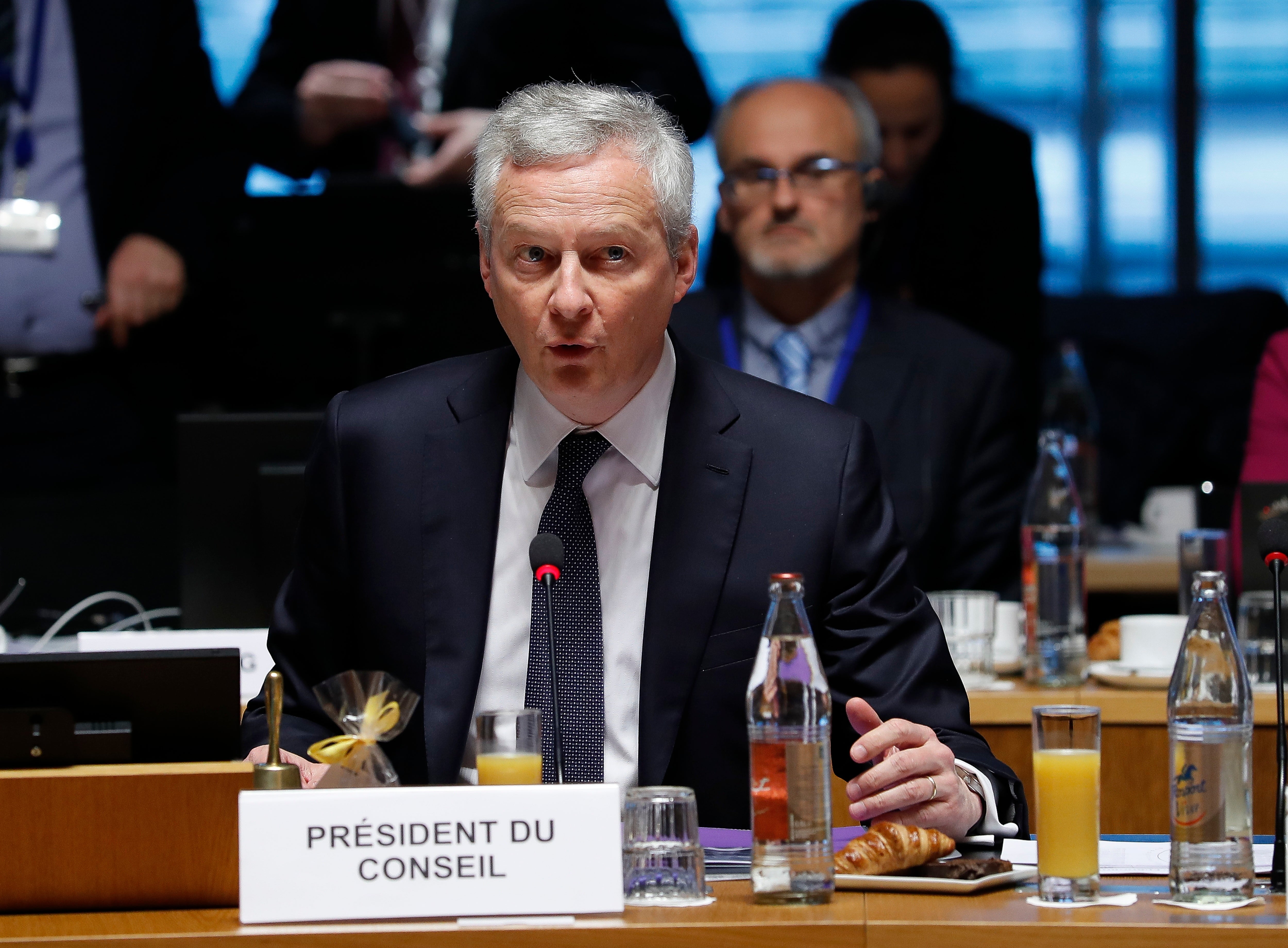French finance minister warns of ‘new era of higher inflation’
Russia’s invasion of Ukraine has led to sharp rise in energy prices and rocked the global economy

Your support helps us to tell the story
From reproductive rights to climate change to Big Tech, The Independent is on the ground when the story is developing. Whether it's investigating the financials of Elon Musk's pro-Trump PAC or producing our latest documentary, 'The A Word', which shines a light on the American women fighting for reproductive rights, we know how important it is to parse out the facts from the messaging.
At such a critical moment in US history, we need reporters on the ground. Your donation allows us to keep sending journalists to speak to both sides of the story.
The Independent is trusted by Americans across the entire political spectrum. And unlike many other quality news outlets, we choose not to lock Americans out of our reporting and analysis with paywalls. We believe quality journalism should be available to everyone, paid for by those who can afford it.
Your support makes all the difference.France is about to enter “a new era of higher inflation” due to rising prices following Russia’s war in Ukraine, finance minister Bruno Le Maire has warned.
“I think by 2023, inflation will decline progressively as we manage to balance offer and demand in the energy sector, but we have to be clear about this: we are entering a new era of higher inflation,” Mr Le Maire told BFM TV on Friday.
France’s inflation figure stood at 5.1 per cent in March. Euro zone inflation in March, while marginally lower than earlier reported, still surged to an all-time high of 7.4 per cent.
Vladimir Putin’s invasion of Ukraine has led to a sharp rise in energy prices, which has intensified inflationary pressures across the global economy, which has already been battered by the Covid-19 pandemic.
Reeling under the impacts of the war, the World Bank too is reducing its global growth forecast for 2022 by nearly a full percentage point, to 3.2 per cent from 4.1 per cent.
Mr Le Maire added that the current inflation in the euro zone’s second-biggest economy is driven to the factor of around 60 per cent by energy prices.
Earlier this week, the finance minister had urged the European Union to prioritise a Russian oil embargo instead of a ban on gas.
“We are trying to convince our European partners to stop importing oil from Russia,” Le Maire told French radio Europe 1. “What has been the primary source of currency for Vladimir Putin for several years? It is not gas. It is oil.”
Prime minister Jean Castex said that France aims to end its imports of Russian gas and oil by 2027. To achieve the target, the country would up its Liquefied Natural Gas (LNG) import capacity.
Despite the rising cost of living, French business activity grew in April at the fastest pace in more than four years, S&P Global said.
“For now, the recovery in the service sector is providing a key support to overall economic activity,” said Phil Smith, an economist at S&P Global, according to Bloomberg.
The agency said its April flash services Purchasing Managers’ Index (PMI) reading for France stood at 58.8 points, up from 57.4 in March.
Ahead of the presidential elections, equities and bonds have also been boosted by expectations that incumbent Emmanuel Macron would secure the office for a second term.
“Given how rampant inflation is at present, it’s difficult to see sustained post-pandemic recovery efforts offsetting the negative impact from rising prices,” said S&P Global’s senior economist Joe Hayes.
Additional reporting by agencies



Join our commenting forum
Join thought-provoking conversations, follow other Independent readers and see their replies
Comments